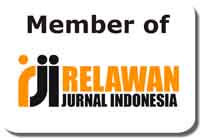Parentinguistics: Authoritarian and Permissive Communication Styles in Parents' Expressive Speech Acts
Abstract
Keywords
Full Text:
PDFReferences
Baumrind, D. (1971). Current patterns of parental authority. Developmental Psychology Monographs, 4, 1–103.
Bornstein, M.H. (2013). Parenting and child mental health: a cross‐cultural perspective. World Psychiatry, 12.
Buri, J. R. (1991). Parental authority questionnaire. Journal of Personality Assessment, 57, 111–119.
Edy, A. (2020). Mendidik Anak Tanpa Teriakan dan Bentakan. Jakarta: Noura Books.
Faridzi, T. S., Elyana, K., & Rijal, S. (2021). Tindak Tutur Pada Tuturan Anak Dan Orang Tua di Kecamatan Samarinda Seberang Kota Samarinda: Tinjauan Pragmatik. Adjektiva: Educational Languages and Literature Studies, 4(2), 67-76.
Hazizah, N. (2019). Permissive Parenting Effect toward Emotional Development of Early Childhood. KOLOKIUM Jurnal Pendidikan Luar Sekolah, 7(1), 1-8.
Kemal, E., Rahmat, W., & Damayanti, M. (2020). Conflict of parents on social media towards their children online school assignments during the Covid 19 pandemic. Curricula: Journal of Teaching and Learning, 5(3), 161-170.
Leech, Geoffrey. 1993. Prinsip-prinsip Pragmatik. Jakarta: Penerbit Universitas Indonesia (UI-Press).
Lo, B. C. Y., Lai, R. N. M., Ng, T. K., & Wang, H. (2020). Worry and permissive parenting in association with the development of internet addiction in children. International journal of environmental research and public health, 17(21), 7722.
Nida, N. A. (2022). AN ANALYSIS OF PARENTS’SPEECH ACT IN SCOLDING THEIR CHILDREN. PROCEEDING STAI RAKHA AMUNTAI, 1(1), 82-91.
Parent, J., Forehand, R., Merchant, M.J., Edwards, M.C., Conners-Burrow, N.A., Long, N., & Jones, D.J. (2011). The Relation of Harsh and Permissive Discipline with Child Disruptive Behaviors: Does Child Gender Make a Difference in an At-Risk Sample? Journal of Family Violence, 26, 527-533.
Pratiwi, W., & Laila, M. (2020). Speech Act Use in Parenting Style toward Children Self-Esteem in Bad Moms Movie. Ethical Lingua: Journal of Language Teaching and Literature, 7(2), 288-299.
Rohmadi, M. (2017). PRAGMATIK: Teori dan Analisis. Yuma Pustaka.
Ryckebusch, C., & Marcos, H. (2004). Speech acts, social context and parent-toddler play between the ages of 1; 5 and 2; 3. Journal of Pragmatics, 36(5), 883-897.
Searle, J. R. (1969). Speech Acts: An Essay in the Philosophy of Language. Retrieved from https://libgen.is/book/index.php?md5=73D11BF1812A7D1C6217A6F6D16417B2
Searle, J. R. (1971). The philosophy of language.
Shaw, Z. A., & Starr, L. R. (2019). Intergenerational transmission of emotion dysregulation: The role of authoritarian parenting style and family chronic stress. Journal of Child and Family Studies, 28, 3508-3518.
Sjöblom, M.K., Öhrling, K., & Kostenius, C. (2018). Useful life lessons for health and well-being: adults’ reflections of childhood experiences illuminate the phenomenon of the inner child. International Journal of Qualitative Studies on Health and Well-being, 13.
Spradley, J. P. (2016). Participant observation. Waveland Press.
Uji, M., Sakamoto, A., Adachi, K., & Kitamura, T. (2014). The Impact of Authoritative, Authoritarian, and Permissive Parenting Styles on Children’s Later Mental Health in Japan: Focusing on Parent and Child Gender. Journal of Child and Family Studies, 23, 293-302.
Yule, G., & Widdowson, H. G. (1996). Pragmatics. Oxford university press.
DOI: http://dx.doi.org/10.31332/lkw.v0i0.5991
Copyright (c) 2023 Kurniawan Kurniawan

This work is licensed under a Creative Commons Attribution-ShareAlike 4.0 International License.
Publisher:
UPT Pengembangan Bahasa, IAIN Kendari
Jln. Sultan Qaimuddin No. 17 Baruga, Kota Kendari, Sulawesi Tenggara
Website: upb.iainkendari.ac.id
Email: [email protected]


















